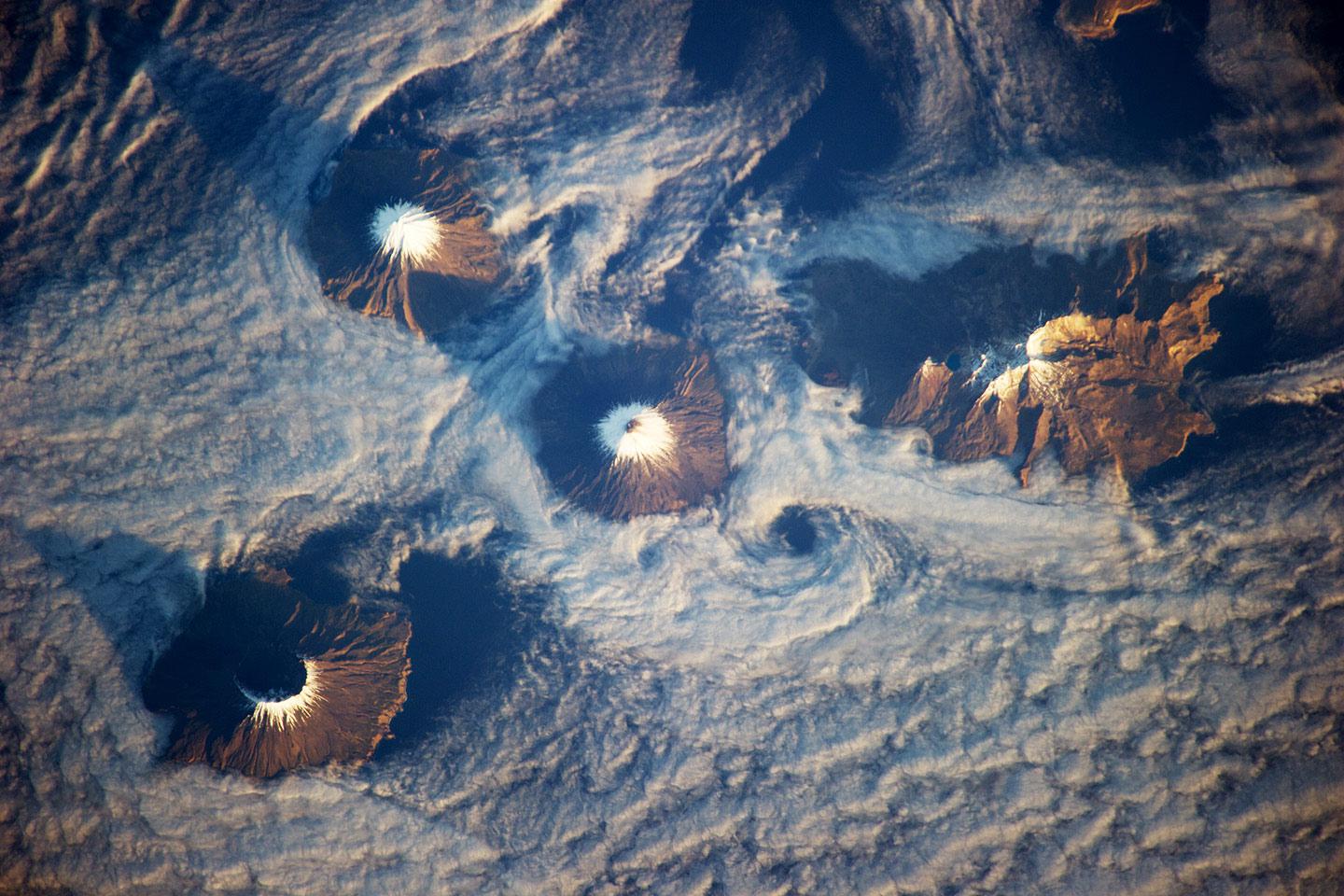One reason* I could never be an astronaut is that all I would ever do while in space is have my nose pressed up against the window all the time. I’d never get anything done.
With views like the one above, can you blame me?
That’s the Islands of the Four Mountains, a section of the Aleutian archipelago in the north Pacific Ocean southwest of Alaska. Each of those mountains you see is actually a volcano: From left to right, they’re Herbert, Carlisle, Cleveland, and Tana. This photo was taken by an astronaut on the International Space Station back in November 2013, hopefully after they cleaned their noseprint off the glass.
North is up, and you can see their shadows stretching to the upper left (northwest), so this shot must have been taken in the local morning, not long after sunrise. The clouds are lovely. You can tell the winds are from the west; Carlisle has a bow wave of clouds around it, and you can see the clouds lapping up the western flanks of Tana like waves.
My favorite part is the little von Kármán vortex of swirling clouds to the east and south of Cleveland. It’s probably a kilometer or two across, and it looks to be caused by the winds whipping around the mountain and interacting with the air flowing around Tana. Beautiful!
All four volcanoes are active; in 2006 Cleveland erupted, and the first people to see it—the first people to even know about it—were astronauts on the space station (incidentally, in that link I express my unhappiness at the time with ISS, an opinion that’s evolved over the intervening years).
Too bad none of them was erupting when this shot was taken, but you can’t have everything. Besides, there are plenty of other erupting volcanoes seen from space. Earth is a pretty active planet, and there is no lack of wondrous eructations to see.
* Besides getting car sick if I turn my head too quickly and being terrified of the idea of strapping myself into the top of a gigantic stack of exploding chemicals, I mean.
